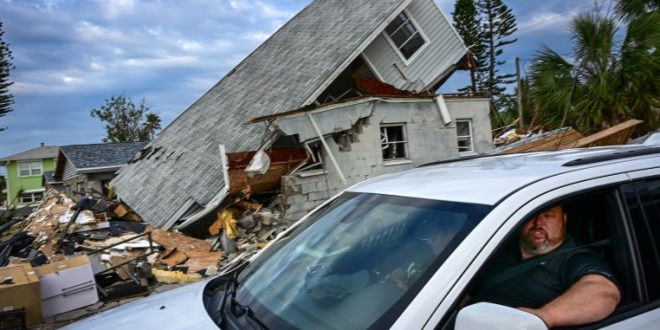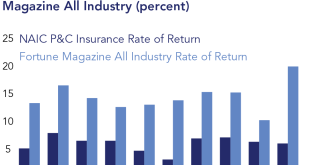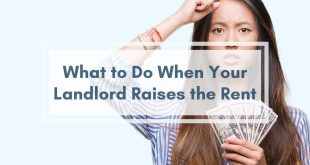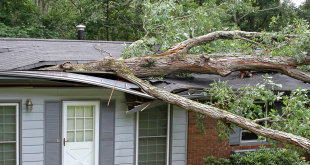Living in Florida has always been a bit of a gamble, hasn’t it? Sunshine, beaches, and… hurricanes. But lately, that gamble feels more like playing Russian roulette. The increasing hurricane risk in Florida is making something many homeowners take for granted – home insurance – increasingly difficult to get. It’s a worrying trend, and if you own property here, or are thinking about moving here, it’s something you need to understand. It’s like, is paradise worth the premium?
The Rising Threat of Hurricanes
Increased Frequency and Intensity
Let’s face it, you’ve probably noticed it yourself. The hurricane seasons seem to be getting longer, and the storms, well, they pack a bigger punch. We’re not just talking about a bit of wind and rain; we’re seeing more Category 4 and 5 hurricanes barreling towards our shores. It’s enough to make you wonder if Mother Nature is holding a grudge. And it’s not just anecdotal; scientists are seeing a clear trend of increased frequency and intensity of major storms.
Impact of Climate Change
Now, let’s not tiptoe around the elephant in the room. Climate change is playing a significant role. Warmer ocean temperatures are essentially fuel for hurricanes, allowing them to grow stronger and maintain that strength for longer periods. It’s basic science, really. The warmer the water, the more energy available to these storms. Some argue about the degree, but can you really deny it when you see it happening year after year?
The Insurance Crisis
Skyrocketing Premiums
So, what happens when the risk goes up? Insurance companies react. And how! Home insurance premiums in Florida have been climbing faster than a homesick angel. It’s getting to the point where many homeowners are feeling the squeeze, having to choose between keeping their coverage and, well, other essentials. I mean, who can afford to pay thousands more each year just to protect their home? It feels kinda extortionate, doesn’t it?
Companies Leaving the Market
It’s not just about higher prices, either. Some insurance companies are deciding that Florida’s hurricane risk is just too much to handle. They’re pulling out of the state altogether, leaving homeowners scrambling to find coverage. It’s like musical chairs, but with your financial security on the line. And let me tell you, it’s not a fun game to play. You’re left thinking, “Are we about to lose everything?”
Citizens Property Insurance: A Last Resort?
That brings us to Citizens Property Insurance, the state-backed insurer. For many, it’s become the only option. But is it a good option? Well, it’s coverage, sure. But it’s also essentially the insurer of last resort. And there are concerns about its long-term viability and potential assessments on all policyholders if a major hurricane were to hit. It’s a safety net, but one that feels increasingly frayed around the edges, doesn’t it?
The Impact on Homeowners
Difficulty Buying or Selling Property
The insurance situation is also throwing a wrench into the real estate market. Buyers are getting cold feet when they see the insurance costs, and sellers are struggling to find people willing to take on the risk. It’s creating a lot of uncertainty and making it harder to buy or sell property. You might have the perfect house, but if the insurance costs are astronomical, who’s going to buy it?
Mortgage Challenges
And it’s not just buyers and sellers who are feeling the pinch. Mortgage lenders are also getting nervous. They require homeowners to have insurance, and if it’s too expensive or unavailable, it can jeopardize the mortgage process. It’s a domino effect that can have serious consequences for the housing market.
Financial Strain and Uncertainty
Ultimately, all of this leads to financial strain and uncertainty for homeowners. They’re worried about being able to afford their insurance, about being able to sell their homes, and about the potential for devastating financial losses if a hurricane hits. It’s a heavy burden to carry, especially when you feel like you’re doing everything right.
Potential Solutions and Mitigation Strategies
Strengthening Building Codes
Okay, so what can you do? One solution is to strengthen building codes. Making sure homes are built to withstand hurricane-force winds can reduce the damage and, hopefully, lower insurance costs. It’s a long-term strategy, but it’s one that could pay off in the end. It’s not just about the initial cost, it’s about the long-term resilience of our communities.
Investing in Infrastructure
Investing in infrastructure is another key piece of the puzzle. Strengthening seawalls, improving drainage systems, and hardening the power grid can all help to mitigate the impact of hurricanes. It’s about protecting our communities and ensuring that we can bounce back quickly after a storm.
Government Intervention and Regulation
Some argue that government intervention and regulation are needed to stabilize the insurance market. This could include things like creating a state-backed reinsurance program or capping insurance rates. It’s a controversial idea, but one that might be necessary to ensure that homeowners can afford to protect their properties.
Exploring Alternative Insurance Options
You might also explore alternative insurance options, such as parametric insurance, which pays out based on the intensity of a hurricane, rather than the actual damage to your property. It’s a newer approach, but one that could offer some relief to homeowners struggling to find affordable coverage. It’s definitely worth looking into, right?
Looking Ahead: Navigating the Future
Preparing for the Worst
Ultimately, the best thing you can do is to prepare for the worst. That means having a hurricane plan, stocking up on supplies, and making sure your home is as protected as possible. It’s about taking control of what you can control and being ready for whatever comes your way. After all, hope for the best, but prepare for the worst, right?
Staying Informed
Stay informed about the latest hurricane forecasts and insurance market trends. The more you know, the better prepared you’ll be to make informed decisions about your property. Knowledge is power, especially in the face of uncertainty.
Long-Term Implications for Florida’s Economy and Population
The escalating hurricane risk and the insurance crisis could have long-term implications for Florida’s economy and population. If it becomes too expensive or too risky to live here, people may start to move away, and that could have a ripple effect throughout the state. It’s not just about individual homeowners; it’s about the future of Florida itself.
So, there you have it. The hurricane risk in Florida is real, and the insurance situation is making things even more challenging. It’s not a pretty picture, but it’s one that we need to face head-on. Maybe it’s time to start those preparations, research alternative options, and stay informed, because this is our home, and we need to do what we can to protect it, right? Who knows, maybe things will turn around, and we can all breathe a little easier. I sure hope so!
 seeme
seeme




